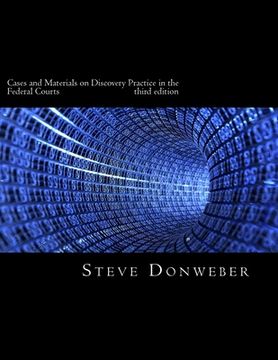Synopsis "Cases and Materials on Discovery Practice in the Federal Courts"
This new edition of Cases and Materials on Discovery Practice in the Federal Courts contains detailed analysis of the 2015 amendments to the Federal Rules of Civil Procedure as they pertain to discovery. This edition also includes a sampling of the latest cases on proportionality, discovery of social media information, discovery from mobile devices, and the preservation of ESI and the imposition of sanctions under new Rule 37(e). *** Discovery is the voluntary exchange of information between the parties during the course of litigation. It is commonly accepted now, but it is not an ancient practice by any means. Rather, it is only since 1938, with the adoption of the Federal Rules of Civil Procedure, that there has been liberal discovery in the federal courts. Prior to that time, discovery in the federal courts was severely limited, and, even as the federal rules were being drafted in the mid-1930s, many members of the bench and bar very much wanted to keep it that way. They feared (perhaps rightly) that any liberalization of discovery would result in the proliferation of the much dreaded "fishing expedition," where a party was permitted to poke around willy-nilly in the opposing party's files. Indeed, the "fishing expedition" bugaboo had haunted the profession for generations, effectively preventing any loosening of the restrictions on discovery. The problem, however, for the anti-"fishing expedition" crowd at least, was that the structure of the new rules almost mandated liberal discovery. It was a major goal of the rules' drafters to shift the pleadings phase of the litigation away from the establishment of facts and the narrowing of issues (as had been the purposes of the pleadings at common law) toward the simple provision of "notice" of the parties' claims and defenses. This shift had profound ramifications. As the new rules restricted the pleadings to the narrow role of providing notice, there arose the need for another mechanism to facilitate factual development and narrowing of issues. The mechanism the drafters chose was liberal discovery, and it was to be controlled by Rules 26-37. (From the Introduction ...)

